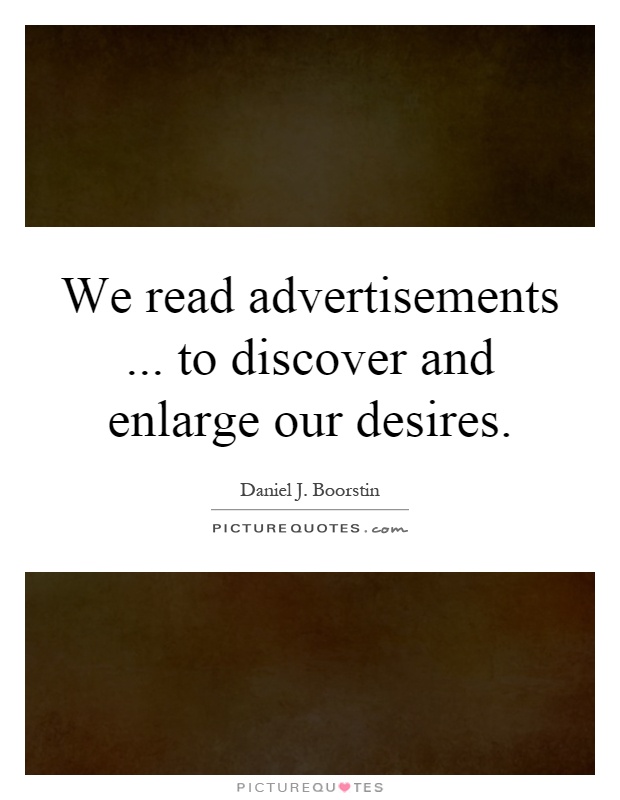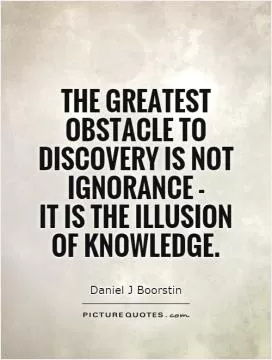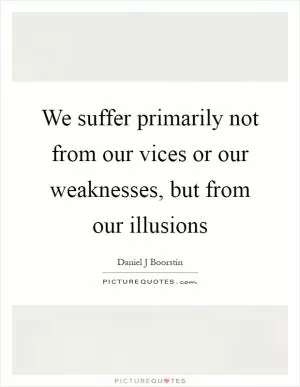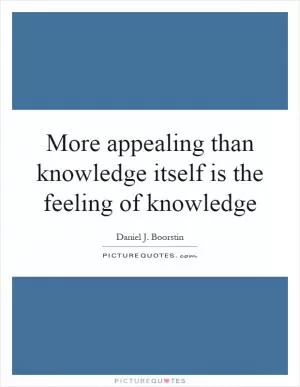We read advertisements... to discover and enlarge our desires

We read advertisements... to discover and enlarge our desires
In his book "The Image: A Guide to Pseudo-Events in America," Daniel J. Boorstin explores the concept of advertisements as a means to discover and enlarge our desires. Boorstin argues that advertisements play a crucial role in shaping our desires and influencing our consumption patterns. He suggests that advertisements create a false sense of need and desire for products and services that we may not actually need or want.According to Boorstin, advertisements are designed to manipulate our emotions and create a sense of dissatisfaction with our current possessions. By presenting us with images of idealized lifestyles and products, advertisements create a sense of inadequacy and drive us to consume more in order to achieve the desired lifestyle. In this way, advertisements not only shape our desires but also perpetuate a cycle of consumption that is driven by materialism and consumerism.
Boorstin also argues that advertisements contribute to the creation of a "pseudo-environment" in which reality is distorted and manipulated to suit the needs of advertisers. Advertisements present us with an idealized version of reality that is designed to appeal to our desires and aspirations. By creating this false reality, advertisements encourage us to strive for unattainable ideals and perpetuate a culture of materialism and consumerism.
Furthermore, Boorstin suggests that advertisements create a sense of artificiality and superficiality in our lives. By promoting products and services that promise to fulfill our desires and make us happy, advertisements create a sense of emptiness and dissatisfaction that can never be truly satisfied. In this way, advertisements not only shape our desires but also distort our perceptions of reality and contribute to a culture of superficiality and materialism.
Overall, Boorstin's analysis of advertisements as a means to discover and enlarge our desires sheds light on the ways in which advertising shapes our consumption patterns and influences our perceptions of reality. By understanding the role of advertisements in shaping our desires, we can become more critical consumers and resist the influence of materialism and consumerism in our lives.












 Friendship Quotes
Friendship Quotes Love Quotes
Love Quotes Life Quotes
Life Quotes Funny Quotes
Funny Quotes Motivational Quotes
Motivational Quotes Inspirational Quotes
Inspirational Quotes